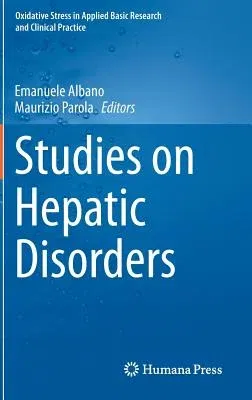This volume examines the current state of free radical biology as it
impacts on hepatic disorders. It takes a thorough look at the
relationship of oxidative stress in acute and chronic disease and takes
into account factors like: redox biomarkers; antioxidant defense and
protection; cell signaling, mutations; oxidative damage involving
lipids, proteins and nucleic acids; membrane trafficking, inflammation,
mitochondrial dysfunction, alterations in immunological function and
toxicology and hypoxia. Studies on Hepatic Disorders, the latest volume
in the Oxidative Stress in Basic Research and Clinical Practice series,
provides a comprehensive look at liver topics. It is organized into four
sections, each one thoroughly covering its topic and consisting of
chapters written by recognized field leaders. Section One, covers basic
principles including redox signaling, antioxidant defenses, nitric
oxide, oxidative mechanisms in senescence and regeneration and the
detection of oxidative stress. Section Two, explores Pathophysiology. It
ranges from cell damage to fibrogenic response as broken out in chapters
on hepatocellular injury, mitochondrial damage, unfolded protein
response and autophagy, inflammation, ischemia-reperfusion injury and
finally, fibrogenesis. Sections Three and Four cover specific diseases
and cancer, respectively. Most of the chapters focus on diseases
including acute failure, alcoholic disease, viral hepatitis, iron
overload, autoimmune disease, Wilson's disease and more, while the
chapters on cancer round out the book.

